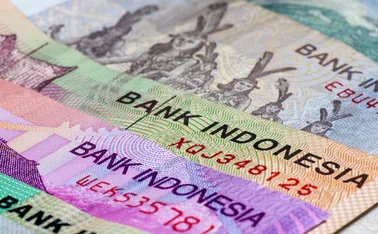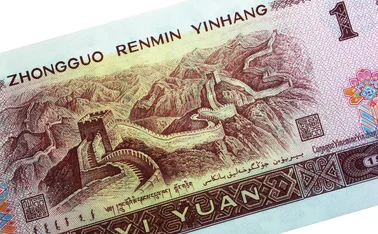
Co-ordinating China’s domestic and international efforts
China can no longer be insular in its policies, writes PBoC deputy governor Yi Gang

With the rise of its economy, China has come to play an increasingly important role in the international community. As a participant and leader of global economic governance, China must also contribute to a more equal and fairer system that will ensure the continued prosperity of the world economy. With much to gain from greater international co-operation, China should co-ordinate both domestic and international efforts with a view towards creating a more harmonious and favorable international environment for economic development.
Maintaining a high growth rate
China is likely to maintain a growth rate of approximately 7% during the next three to five years, or even longer. Two important driving forces are underpinning confidence in economic growth. One is the new model of urbanisation. Permanent urban residents currently account for about 55% of China's population. If the ratio grows at 1% annually, they will make up 70% in about 10 years, an increase that is likely to spur considerable economic growth.
The other driving force arises from Beijing's efforts to delegate administrative powers to regional and municipal governments, as well as to society at large. Such reform will help boost total factor and labour productivity, which will further increase growth.
 Yi Gang
Yi Gang
As China's economy enters the ‘new normal' era – representing a transition from high to medium-high economic growth internationally – the country's growth model will change. First, domestic consumption will take precedence, replacing investment as the top contributor to economic development, and services will replace manufacturing as the leading sector. Second, China will attach greater importance to environmental protection and energy conservation, which will provide major growth opportunities in the future. As the largest developing country in the world, China will make great efforts in tackling climate change, protecting the environment, saving energy, reducing emissions, and lowering energy use per unit of GDP.
Third, China will put greater emphasis on social security. The country's social safety net will be developed to cover pensions, healthcare, subsistence allowances and care for the disabled. Fourth, and most importantly, China's economic growth will be driven by innovation, relying increasingly on human resources and less on investment and resource consumption.
No slowdown to reforms
The International Monetary Fund's decision on December 1, 2015, to include the renminbi in its Special Drawing Rights (SDR) basket, was a mutually beneficial milestone that promises to provide long-term benefits for China and the world. It is testament to the international community's recognition that China has come a long way in reforming and opening up its economy and – importantly – its currency.
While the renminbi's inclusion in the SDR basket was of great importance, much remains to be done. Upcoming reforms will make China's monetary policy framework more consistent with international practices in terms of transparency, communication and the management of expectations. A stable interest rate corridor will be developed that continues the focus on prices, while also placing greater emphasis on quantitative instruments. A huge gap between China and more mature markets still exists and China should continue reforms to ensure the renminbi reaches its potential as a widely used international reserve currency.
Active role in global governance
As globalisation deepens, economies are growing more intertwined, creating new challenges that require global solutions. Currently the world's second largest economy and expected to grow at a medium-high rate during the coming years, China's economic influence is constantly expanding, while global financial markets simultaneously are affecting the country to a higher extent. Therefore, it is important to facilitate international macroeconomic policy co-ordination and make use of bilateral and multi-lateral platforms to engage in constructive dialogues. This will promote economic growth in China, as well as international stability. China should work actively to strengthen global economic governance and make efforts to continuously improve the underlying framework.
A stable global financial system is vital to economic growth and social stability. China must be fully engaged in the core decision-making processes
Yi Gang, Central Leading Group on Financial and Economic Affairs
A stable global financial system is vital to economic growth and social stability. China must be fully engaged in the core decision-making processes of international bodies like the Bank for International Settlements, Financial Stability Board and Basel Committee on Banking Supervision. The government must articulate its position and ensure that all reform proposals and international standards conform to China's national interests, thereby contributing to the improvement and consolidation of the global financial system.
China should step up efforts to monitor and promote orderly capital flows. It should also introduce and implement, in a timely manner, new international standards aimed at strengthening cross-border supervisory co-operation and preventing the occurrence of systemic financial risks. China should raise the world's awareness of inclusive finance and financial infrastructure construction, share successful experiences with others and promote development of the financial system in a manner that will benefit low-income countries and stakeholders.
Finally, China will actively promote and lead negotiations on the Regional Comprehensive Economic Partnership and the establishment of the Free Trade Area of the Asia-Pacific, as well as accelerate the establishment of free-trade zones with surrounding countries.
Meanwhile, China should adhere to the concept of ‘open regionalism', promote cross-regional collaboration, undertake to establish a network of free-trade zones that is open to the world and of high standard, and realise ‘win-win' results and mutual benefits with related countries.
Only users who have a paid subscription or are part of a corporate subscription are able to print or copy content.
To access these options, along with all other subscription benefits, please contact info@centralbanking.com or view our subscription options here: http://subscriptions.centralbanking.com/subscribe
You are currently unable to print this content. Please contact info@centralbanking.com to find out more.
You are currently unable to copy this content. Please contact info@centralbanking.com to find out more.
Copyright Infopro Digital Limited. All rights reserved.
As outlined in our terms and conditions, https://www.infopro-digital.com/terms-and-conditions/subscriptions/ (point 2.4), printing is limited to a single copy.
If you would like to purchase additional rights please email info@centralbanking.com
Copyright Infopro Digital Limited. All rights reserved.
You may share this content using our article tools. As outlined in our terms and conditions, https://www.infopro-digital.com/terms-and-conditions/subscriptions/ (clause 2.4), an Authorised User may only make one copy of the materials for their own personal use. You must also comply with the restrictions in clause 2.5.
If you would like to purchase additional rights please email info@centralbanking.com








